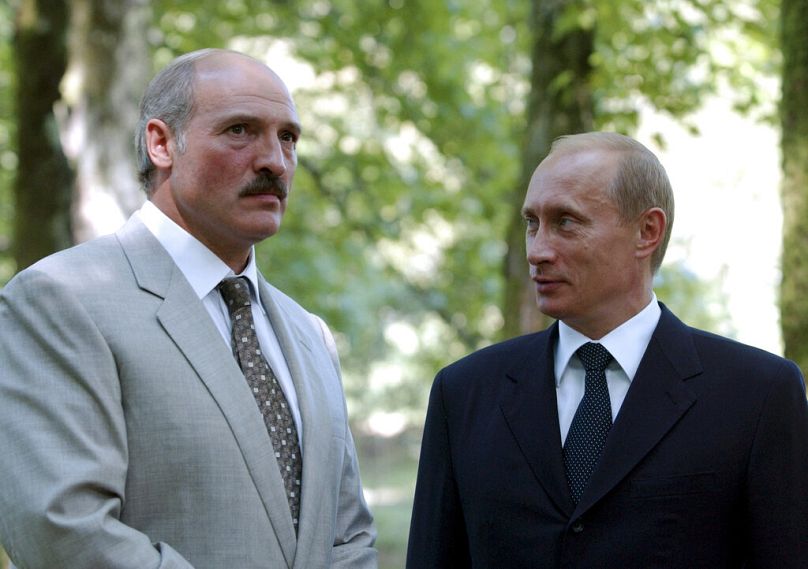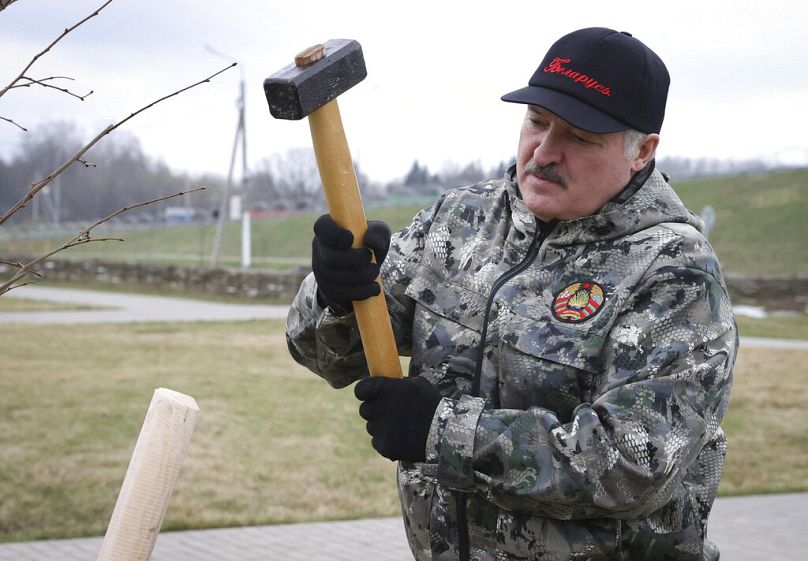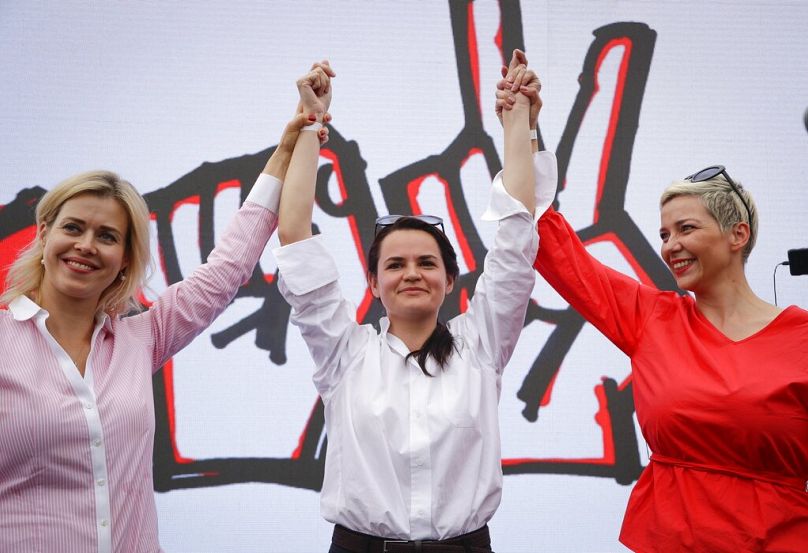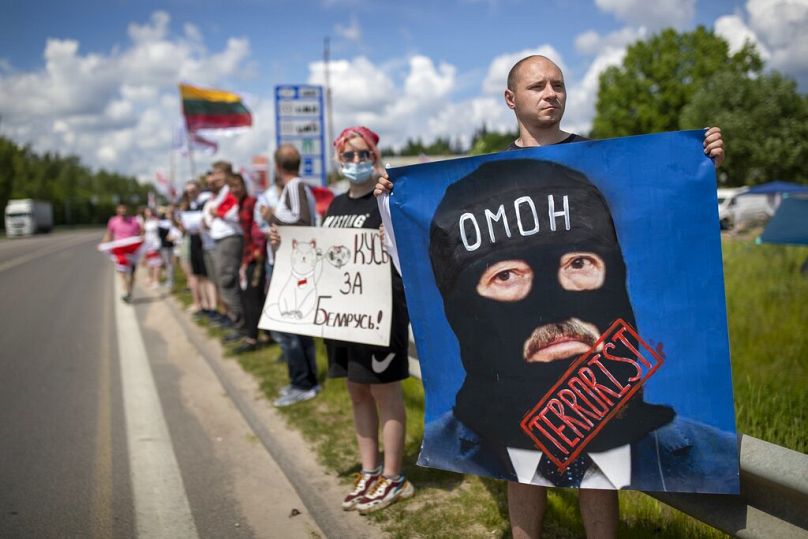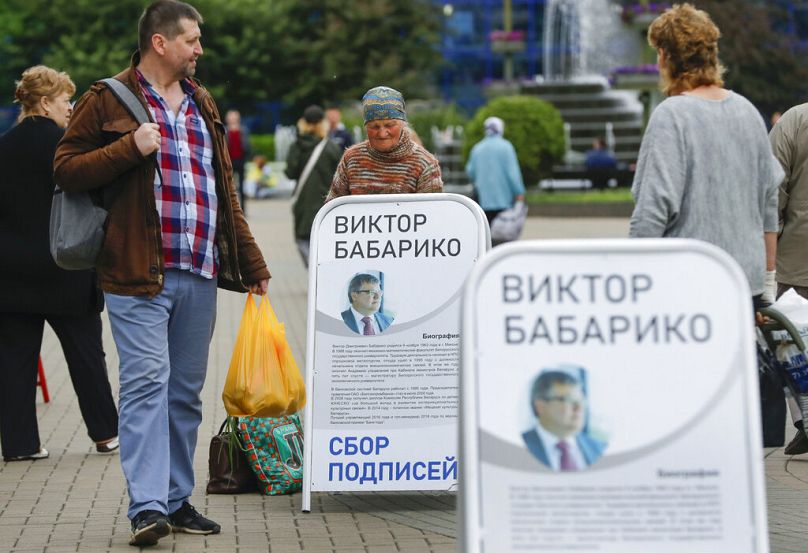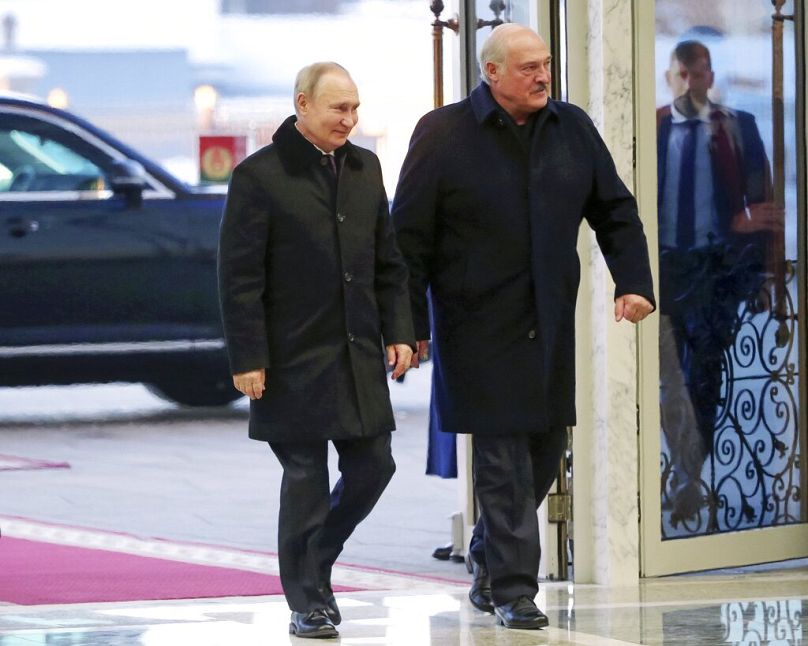Lukashenka's continued repression of dissent is a catastrophe unfolding right now in the middle of Europe and on the EU's border. Remaining silent about it will come at a significant cost, Anna Zlatkovskaya, Inna Kavalionak, and Vita Dudko write.
2020 was one of the most significant years in the history of Belarus. It was the year of the presidential elections, and strongman Alexander Lukashenka claimed victory, though the results were rejected both by the Belarusian people and the international community alike.
 ADVERTISEMENT
ADVERTISEMENT
 ADVERTISEMENT
ADVERTISEMENT
Throughout the remainder of 2020, mass protests took place in Belarus, followed by a forceful crackdown. Those detained during the protests are the political prisoners of today.
Right now, their number stands at 1772, and when all of their prison sentences are added up, the total comes out to mindblowing 7717 years they are expected to spend behind bars.
Lukashenka won fairly just once
There have always been political prisoners in Belarus, but the focus was previously on individual charges. As of May 2020 — months before the August election — there were only two such cases.
However, throughout Lukashenka's nearly 30 years in power, people have been subjected to persecution, unlawful arrests, and violence.
To this day, the cases of the disappearances of Lukashenka's main political opponents of the 1990s, such as Yuriy Zakharanka, remain unresolved.
The only elections that Aliaksandar Lukashenka won fairly were those in 1994.
Subsequent elections were marred by violations, which elicited reactions from both the international community and the Belarusian people.
Large-scale protests followed the elections in 2006 and 2010. Anyone who took to the streets was subjected to aggressive attacks by the security forces.
However, it was the year 2020 that stood out. Why?
COVID outbreak mismanagement resulted in growing demands for change
Overall, the period from 2015 to 2020 witnessed relative liberalisation in Belarus.
Various NGOs existed, the cultural sector developed, and Belarusian society felt increasingly independent and capable of participating in the life of their country.
At the beginning of 2020, when the whole world was facing the COVID-19 pandemic and taking measures to prevent its spread, the authorities in Belarus took a dismissive approach.
No mask mandates or other safety measures were implemented.
Lukashenka suggested treating the virus with vodka and tractors. Belarusians began organising grassroots initiatives and assisting healthcare workers by crowdfunding and providing them with protective equipment.
Therefore, when interesting and promising candidates emerged in the pre-election field in May 2020 — such as Valery Tsepkalo, Viktar Babaryka, Sergei Tikhanovsky and later Sviatlana Tsikhanouskaya — there was a strong demand for change in society.
Belarusians actively engaged in the pre-election campaign, engaging in civic mobilisation, pickets, and the 2020 elections promised to be vibrant and different.
2020 elections end up in violence and repression
However, Lukashenka continued to act as he always had, arresting politicians and activists. Even the yet-to-be-registered candidates, Sergei Tikhanovsky and Viktar Babaryka, were detained before the elections.
The only officially registered candidate was the "harmless, ordinary housewife" Sviatlana Tsikhanouskaya.
Representatives of Viktar Babaryka — the candidate with the greatest support — and Valery Tsepkalo later supported her campaign.
Thus, a triad emerged: Sviatlana Tsikhanouskaya, Maria Kalesnikava, and Veronika Tsepkalo. The female trio captured the world's attention.
The 9 August elections were marred by numerous violations, followed by four dark days in the history of Belarus filled with violence.
Unarmed people were subjected to stun grenades, beatings, and arrests. Some were immediately charged with criminal offences, while others were placed under 15-day arrest.
By mid-September 2020, it became evident that the number of political prisoners would only continue to rise.
Unprecedented repression paralysed the Belarus society
The level of repression and political persecution in Belarus has been unprecedented. Since September 2020, there hasn't been a week without an increase in the number of political prisoners in Belarus, with the ages of those imprisoned ranging between 16 and 75 years old.
People continue to be detained and sent to prison in 2023 simply for being recognised in protest photographs, the most common charge being "participation in mass riots" or "preparation for mass riots".
Other popular charges include the "formation of organised groups". Since 2022, individuals have also been regularly targeted for supporting the resistance to the war in Ukraine.
In turn, the level of repression has paralysed Belarusian society, making it impossible for any public protests to take place.
This is reinforced by hate speech propagated through state-controlled media, which further divides society.
The absence of a social contract in Belarus creates a dangerous situation that relies solely on the perpetuation of endless repression. Many Belarusians are forced to leave the country out of fear of persecution.
Yellow patches and extremist labels
On top of that, political prisoners in Belarus face constant additional pressures.
They experience numerous restrictions, get labelled as extremists, and are required to wear yellow patches on their clothing.
They are deprived of correspondence, meetings with family members, and receiving packages.
Adequate medical assistance is often denied to them. One of the opposition leaders, Maria Kalesnikava, was hospitalised in the autumn of 2022, and Viktar Babaryka's condition and status remain unknown to this day.
As we near the summer, there is a trend toward complete isolation of political prisoners, especially the leaders.
There is a risk that a society that has gone through such trauma will no longer be able to resist, especially considering its proximity to Russia.
Europe can't remain silent
Resistance is a strategic and political struggle for each political prisoner for freedom and for the respect of human rights.
If we do not want to lose the country to the Kremlin and allow the Russian border to reach the European Union, we must openly and repeatedly speak out about what is happening in Belarus without remaining silent and, in turn, complicit.
This is what Belarusians continue to talk about and ask the global community, whose values are human dignity and the observance of rights and freedoms, to do as well.
Normalcy must triumph over repression, torture, and unlawful regimes.
Anna Zlatkovskaya, Inna Kavalionak, and Vita Dudko are members of Politzek.me, a platform supporting political prisoners in Belarus.
At Euronews, we believe all views matter. Contact us at view@euronews.com to send pitches or submissions and be part of the conversation.











